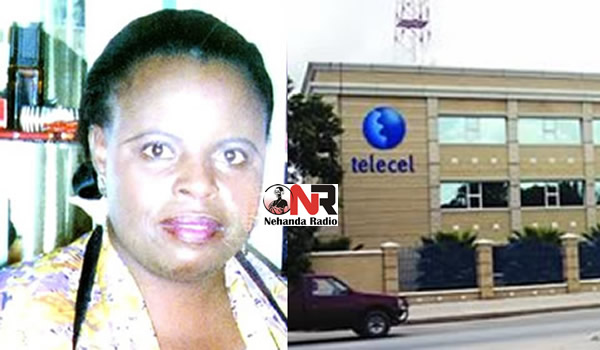‘Disputed Telecel stake equitably issued’
HARARE – An unissued 30 percent shares — at the centre of a dispute between Empowerment Corporation (Private) Limited (EC)’s founding shareholders — were equitably distributed among sitting investors of the Telecel Zimbabwe (Private) Limited (Telecel) minority shareholder then, businessdaily can reveal.

This comes as the Indigenous Business Women Organisation (IBWO) president Jane Mutasa and Selpon Investments (Private) Limited (Selpon) have made an application to query fellow EC founder James Makamba’s accrual of a 95 percent stake in the empowerment vehicle.
With the seven sitting shareholders agreeing on an issued and paid up capital of 70 percent when EC was setup 16 years ago, about 30 percent was to be reserved for a technical partner — an arrangement which fell away when Telecel International (TI) was brought on board.
As such, the unissued shares were subsequently distributed to the founding shareholders investment vehicle under a process supervised by its professional advisors.
However, despite the latest court challenges — and noise — information at hand also shows that Mutasa and several other Telecel shareholders forfeited their EC shares after failing to pay for their allotted scrip through commitment fees, and collateral for key start-up costs.
The seven founding shareholders, including the Affirmative Action Group (AAG), farmers, the Zimbabwe National Liberation War Veterans Association (ZNLWVA) and the Zimbabwe Small Scale Miners Association (ZSSMA), were allocated shares between nine to 15 percent.
Out of this, only Kestrel, the AAG and ZSSMA were able to pay their commitment fees in full and yet the Harare businesswoman and Selpon want a reversal of shares worth 72 percent of EC and held by Makamba’s Kestrel.
According to information at hand, the parties — including Integrated Engineering Group (IEG) —were also expected to pump in 60 percent of a $2 million requirement to operationalise the venture, but Mutasa’s IBWO only managed to partly pay for the two contributions.
On the other hand, Leo Mugabe’s firm out rightly failed to pay both the commitment fees and a portion of its loan obligation.
As such, the exiled businessman’s firm chipped in with the biggest security contribution — and equivalent of Z$16 million then — to rescue the other shareholders, and which money was secured from CBZ Bank Limited.
This was backed up by resolutions of a May 21, 1998 meeting in the capital and whose binding resolution was that anyone who had failed to subscribe for their shares “would forfeit them to other shareholders on a prorate basis”.
With EC being formalised — through the appointment of a five-member board — in June 1998, businessdaily reported last week that various pressure groups not only transferred scrip to private entities, but voluntarily sold down their positions to Makamba’s Kestrel.
For instance, Chiyangwa’s Native Telecoms and the Magamba Echimurenga Housing Scheme (Magamba) cashed in their shares, with the former pocketing a Z$14 million cheque.
Despite the fact that Mutasa’s Selpon had taken up some shares allocated for IBWO, the latter sold at least two parcels, which also spawned part of the love-hate relationship between Makamba and the feisty businesswoman.
“In May 199, IBWO sold 1 500 of its shares and subsequently sold a further 191 of its shares, leaving it with 1 692 shares. The IBWO shares were offered to the remaining on a prorate basis,” said a source close to the developments yesterday, adding Selpon and ZSSMA declined to acquire the shares, and which were eventually acquired by Kestrel. Daily News






